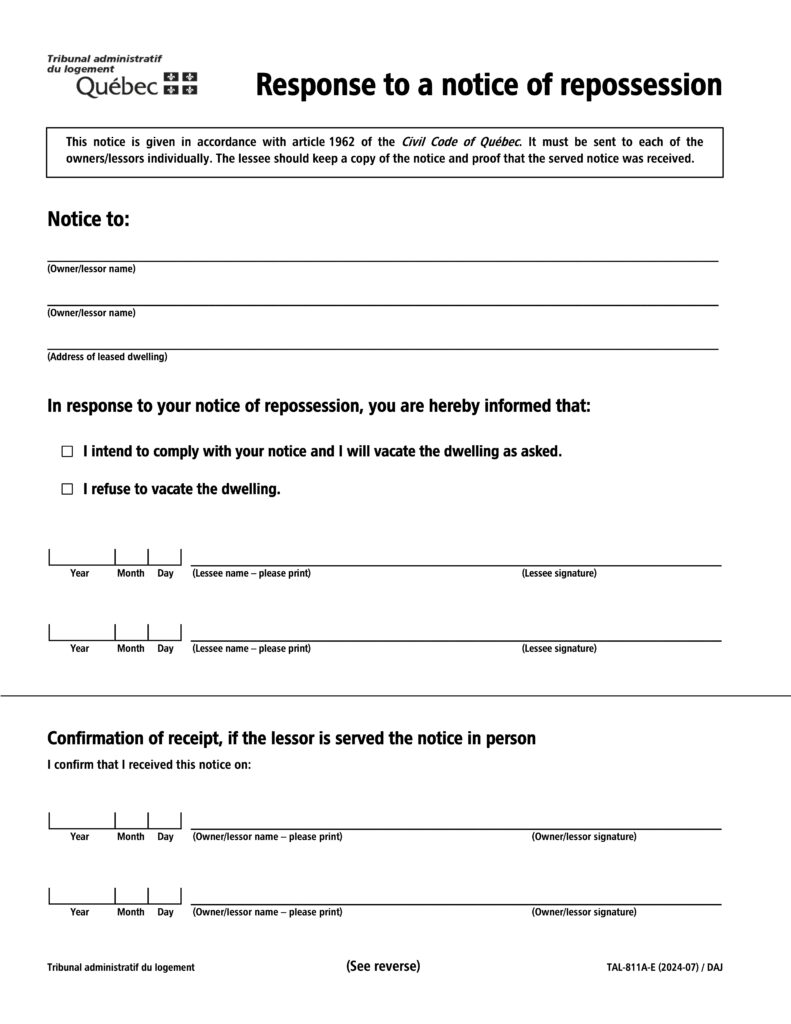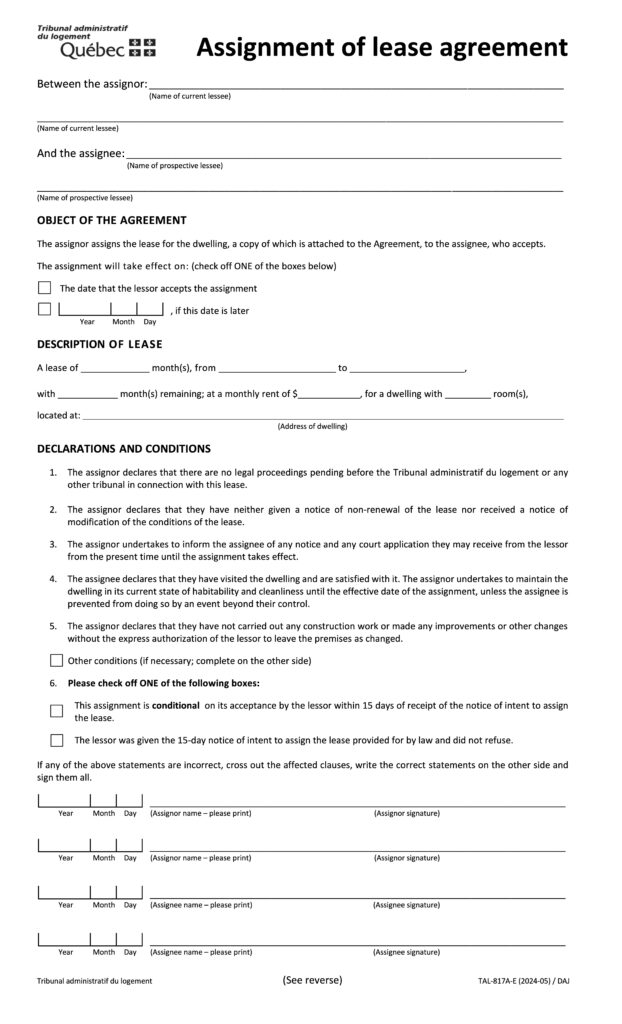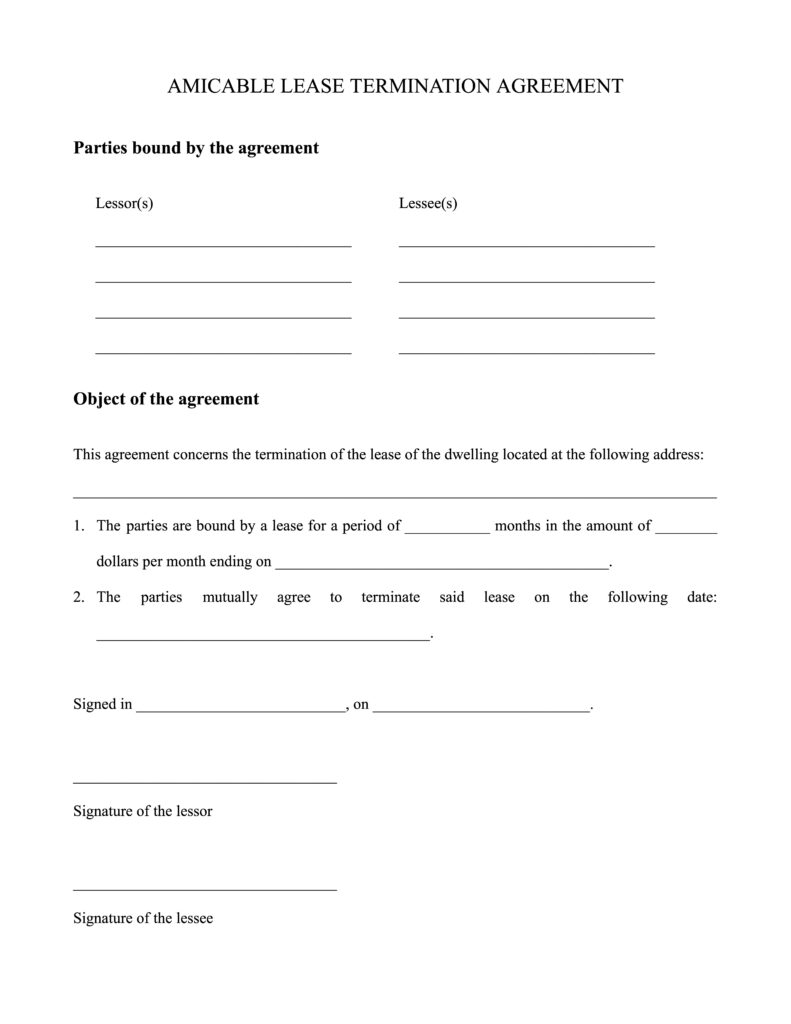Notices
Below are a selection of model notices provided by the Administrative Housing Tribunal (TAL), accompanied by an explanation of each kind of notice. To download a copy of reach notice, click on the image to the right. For more model notices, visit the TAL website.
Any time you send a notice or letter to your landlord, make sure that you keep at least one copy of the signed notice for your records. Additionally, be sure to obtain proof of when the notice is received by your landlord, either by sending it via registered mail, by bailiff, or by delivering it by hand and requesting that your landlord sign a receipt.
Lessee’s response to a notice of rent increase and modification of another condition of the lease
This notice can be used to refuse a rent increase or to terminate a lease following the receipt of a notice of lease renewal by the landlord. This notice must be received by the landlord within 30 days of the tenant’s receipt of the notice of lease renewal.
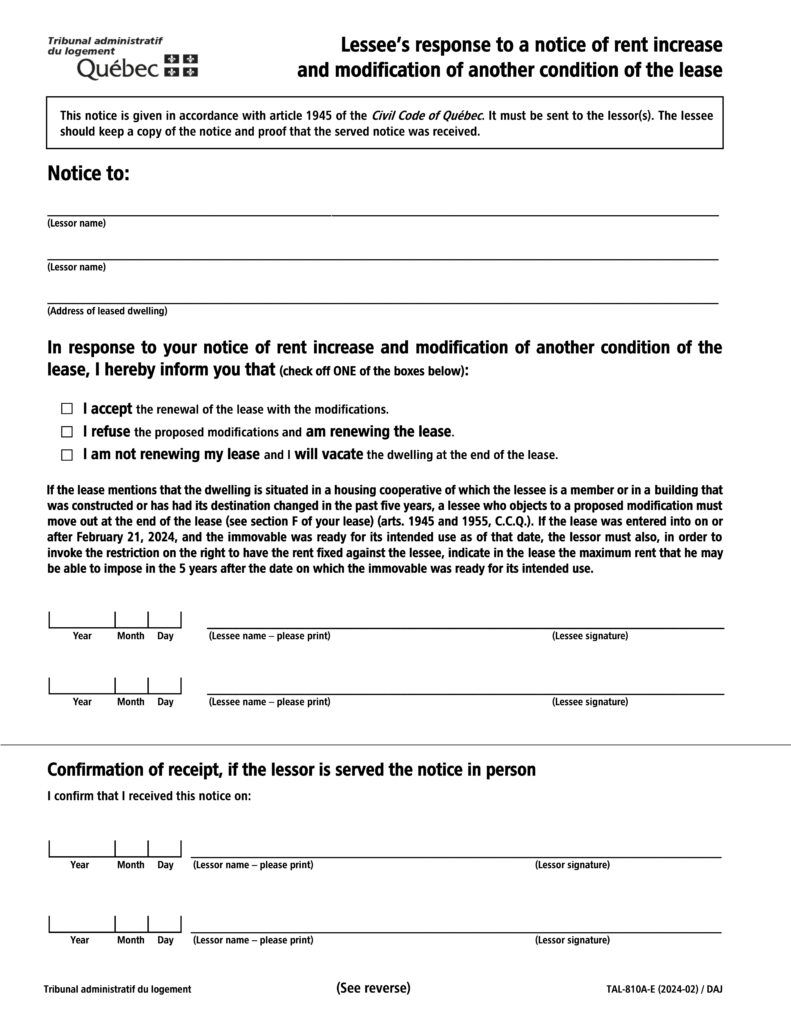
Notice of cessation of cohabitation
You have a right to maintain occupancy of a rental unit even if your spouse, relative, or de facto spouse is the only one on the lease and has left the premises. However, you must send this notice to your landlord within 2 months of their departure.
For example, your husband is the only person on the lease for a house that you have lived in together for 20 years. You separate and your husband moves out of the house. You have a right to stay in the house as a tenant, but you must send this notice to your landlord within 2 months of your husband moving out.
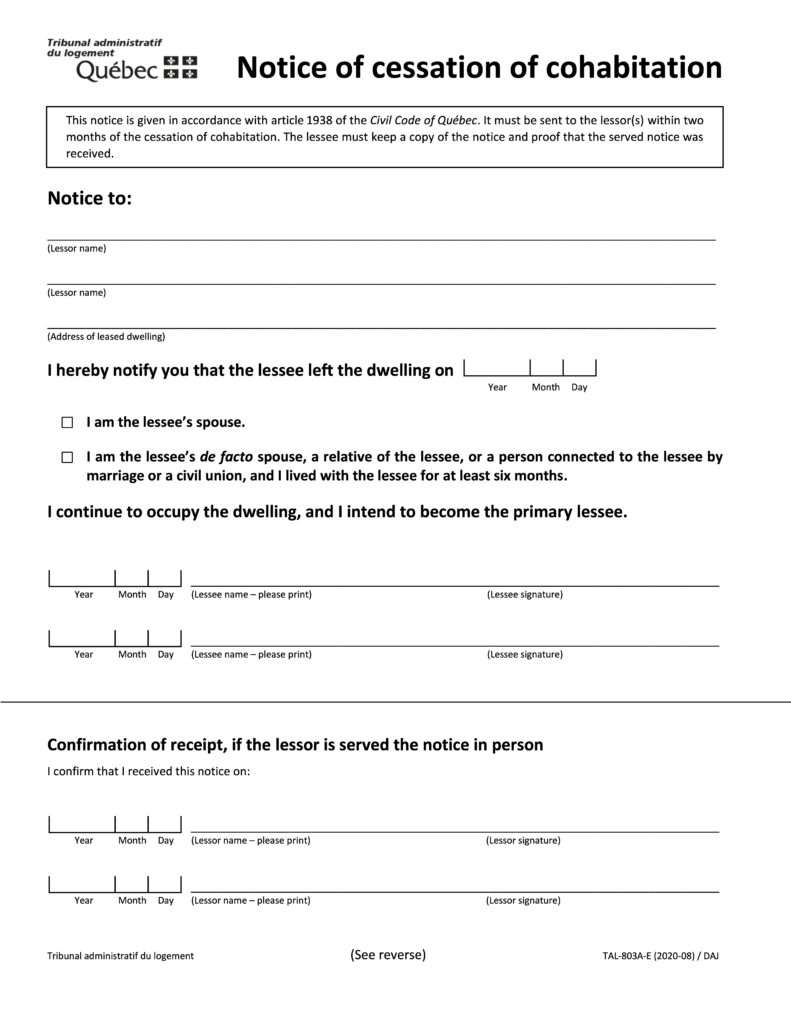
Notice of lessee’s death
You have a right to maintain occupancy of a rental unit even if your family member or the person you were living with was the only one on the lease and has passed away. However, you must send this notice to the landlord within 2 months of their passing. This notice can also be used to terminate a lease in the event of the passing of the tenant.
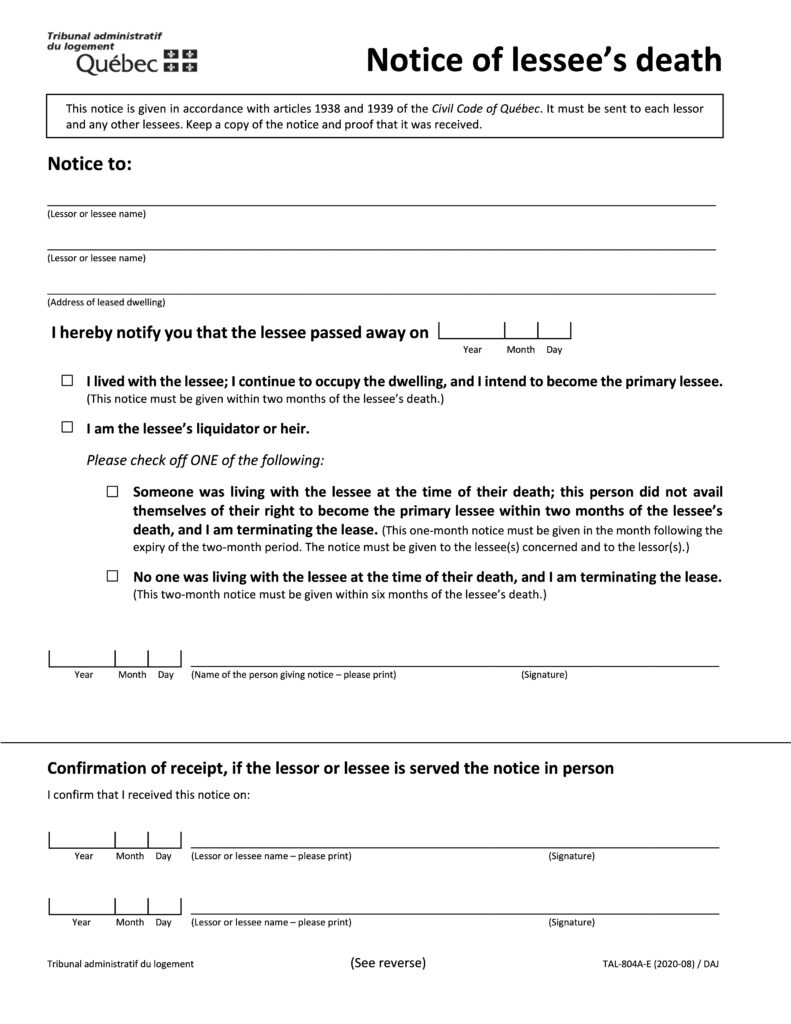
Notice of lease assignment
This notice can be sent to your landlord to notify them of your intention to transfer your lease. Once your landlord receives this notice, they have 15 days to refuse your lease transfer. If they do not respond, they are presumed to have accepted the lease transfer. If they refuse without providing a serious reason for the refusal, your lease will be terminated on the date of the proposed lease transfer.
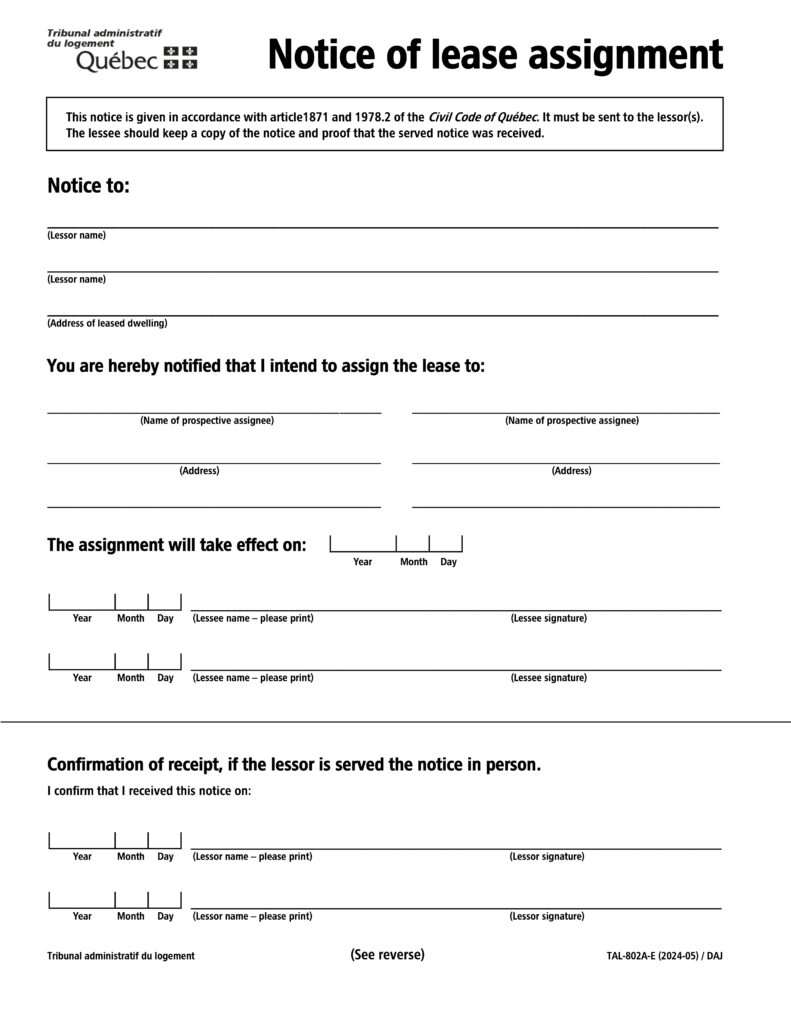
Notice of subletting of dwelling
This notice can be sent to your landlord to notify them of your intention to sublet your apartment. Once your landlord receives this notice, they have 15 days to refuse your sublet, for a serious reason only. If they do not respond, they are presumed to have accepted the sublet.
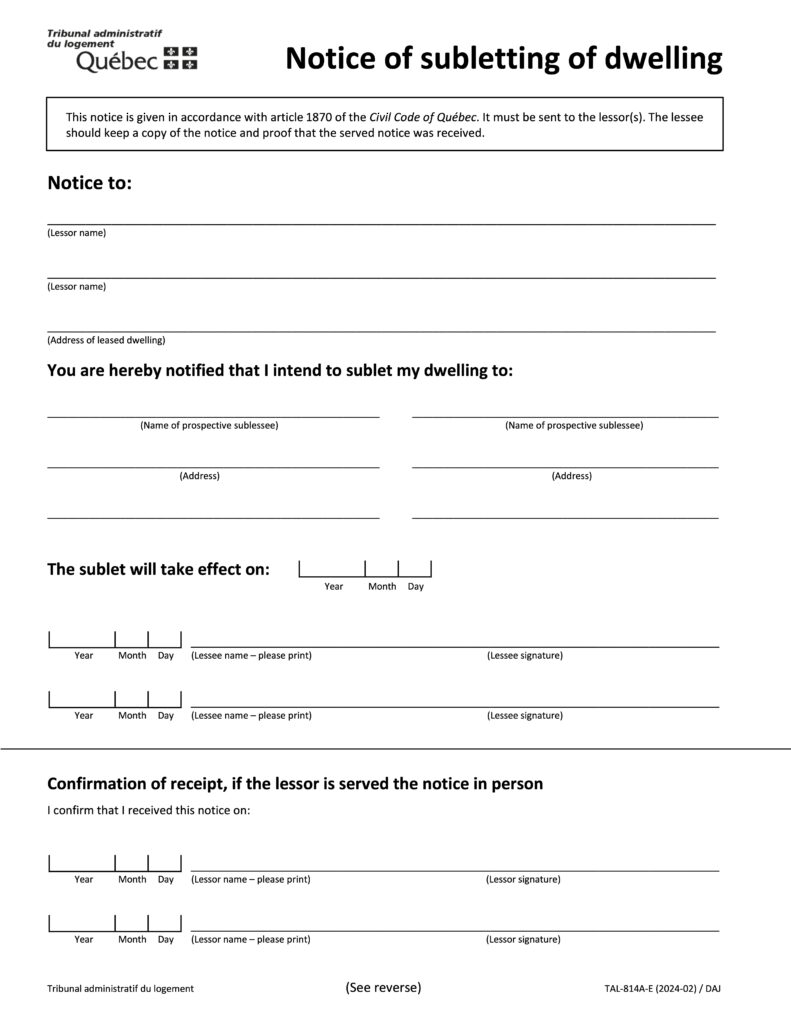
Notice of non-renewal of the lease by the lessee
This notice can be sent to your landlord during the lease renewal period to terminate your lease at the end of its term. Please note that once you receive a notice of lease renewal from the landlord, you have 30 days to respond if you wish to terminate your lease. You can respond either by sending this form or by sending the “Lessee’s response to a notice of rent increase and modification of another condition of the lease.”
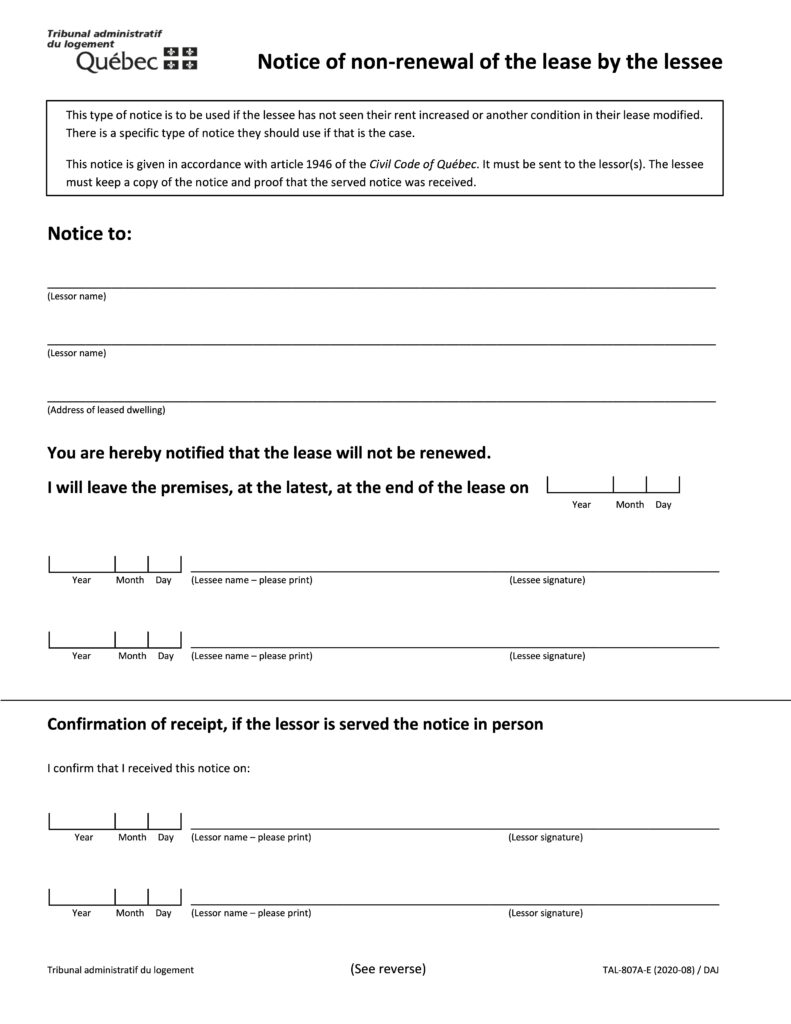
Notice of rent deposit
This notice MUST be sent to your landlord if:
- your landlord has refused your rent payment, refused to cash your rent check or sent back a rent payment; or
- you are unsure of where or how to pay rent and/or who to pay rent to; or
- you plan on submitting an application to deposit your rent at the Administrative Housing Tribunal (TAL) for another reason.
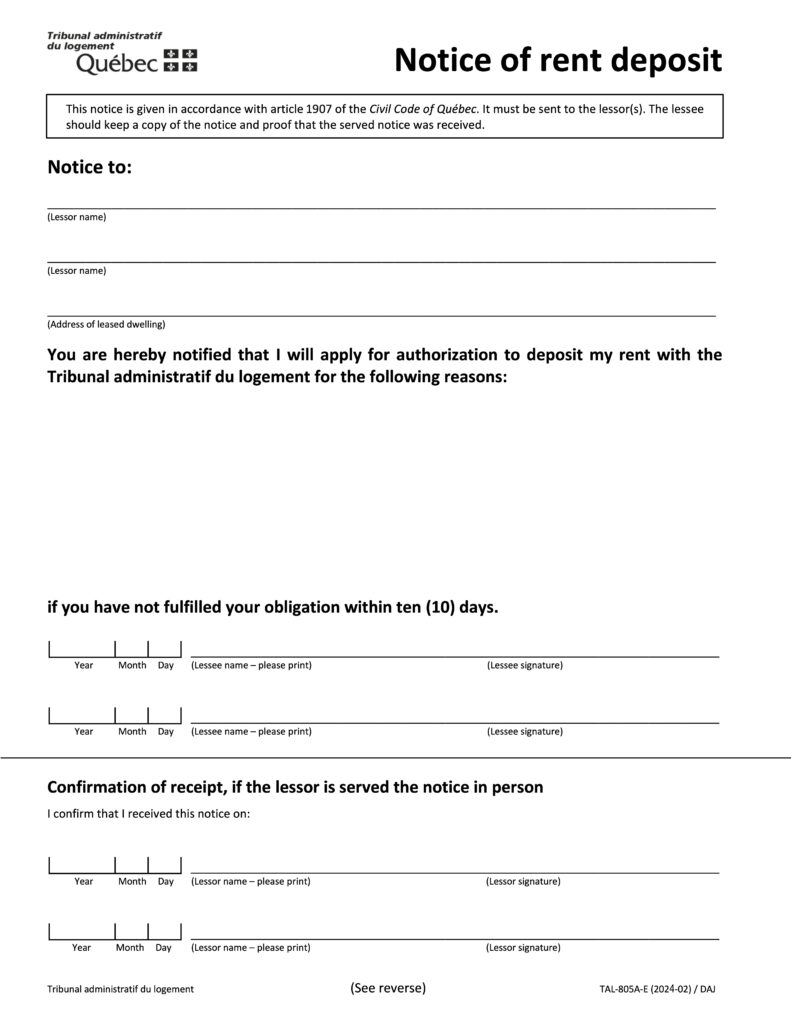
Model Agreements
Below are a selection of model agreements. Feel free to modify them as you see fit or seek legal counsel, as needed, for the drafting of an agreement.
For more models of agreements, visit locataire.info or contact us.
If your landlord presents you with an agreement and you are not sure what it means or whether you should sign it, reach out to the CALODI for support.
Once you sign a contract or agreement, it is legally binding, so you should never sign anything that you do not understand or do not want to sign. Even if your landlord is pressuring you to sign something, remember that you always have time to consider your options and inform yourself!

